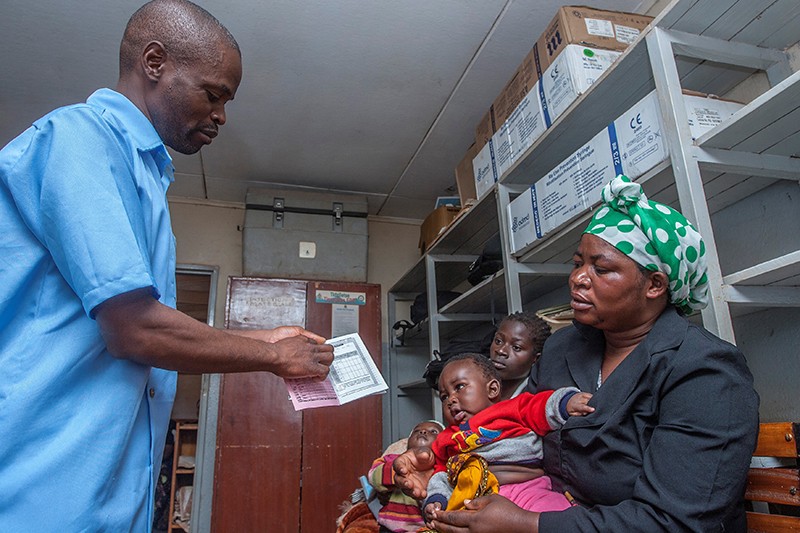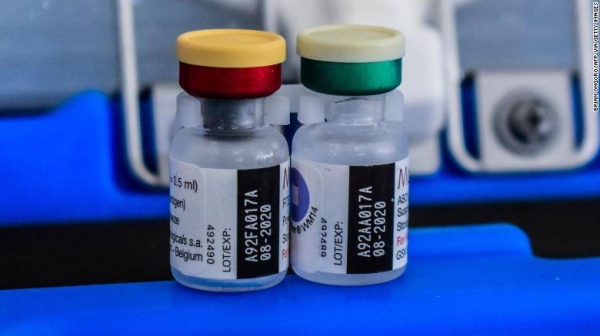When the contemporary world is all set to bid its farewell to the deadly pandemic of coronavirus, there exists a hemisphere that for centuries has been struggling, grappling, and fighting with another parasitic disease that kills more than half a million people annually.
This trend of countless people falling prey to this microbe-sponsored disease is not a novel one and this largely is the reason why it has been overlooked by the highbrow eye of the concerned authorities for the longest of time. But to the fortune of millions of African population, a new and alleged ‘trustworthy’ weapon has been formulated to wage a potential war against the disease, battles against which have hitherto been lost.

Malaria stands as the deadliest and most dangerous of all potential biological carriers of death in the sub-Saharan African subcontinent, especially in Kenya. Malaria kills about 500000 people every year, nearly two-thirds of which is constituted by children below the age of 5, owing to their poor and infant immune system.
This newly developed, first in its league vaccine has gained a lot of prominence in the shortest of time because of the gravitas of claims that it holds and the burden of hope that it invisibly carries. The vaccine has been developed by GlaxoSmithKline which claims to ameliorate the infant immune system in order to ward off the pathogen which causes the said disease.
Plasmodium Falciparum happens to be the deadliest of all five pathogens behind Malaria and is the one prevalent in African countries. Biologically, parasites are much more difficult to tackle, as compared to the other microbe-induced diseases. This largely forms the justification for such delayed development of a ‘parasite targeted antidote’ and thus Mosquirix becomes the first vaccine for not only Malaria but any parasite, ever devised. In the words of Dr. Pedro Alonso, director of the W.H.O.’s global malaria program, it is a huge jump from the scientific perspective to have a first-generation vaccine against a human parasite. “A historic event”, he adds.

Unfortunately, in the history of its trials, Mosquirix did not prove to be trustworthy enough. With a 50 per cent efficacy rate in the first clinical trial, the figure dropped to nearly zero by the fourth year. This has led to a lot of scepticism among the think tanks concerning this vaccine’s deployment in a region that already has a staggering state of development in all spheres.
A recent case study revealed that if the vaccination is supplemented by other allied drug doses and proper healthcare, then the results are quite promising, then either performed alone. Until now, the most promising and feasible refuge for the Africans has been the usage of insecticide-infused bed nets, but this is a mere refuge and not a cure. The most problematic nature of this disease is that it can affect a person multiple times, wherein it does not lead to the death of the individual but leaves the body weak and vulnerable to other fatal microbes.

Ashley Birkett, who heads malaria programs at PATH, a non-profit organization focused on global health, states that the newly devised vaccine has a huge potential in treating and preventing Malaria. The Mosquirix has to be given in four doses and schedules.
Kenya, Malawi, and Ghana are the primary countries where a full-fledged immunization program is being carried out with nearly 2.3 million doses already administered.
A major hurdle that stands ahead of the African health administration is the proper and efficient distribution of the vaccine since it has to be administered four times within a span of just five months, posing a genuine logistical problem, especially in the violence-prone conflict zones of the continent.
But among the civilians, there has emerged this ray of hope concerning the vaccine, which they believe will emancipate them from all medical miseries.

Also Read : CHINA’S POWER CRUNCH, WOULD INDIA BE RECEIVING CHINA’S SHARE OF INVESTORS
















